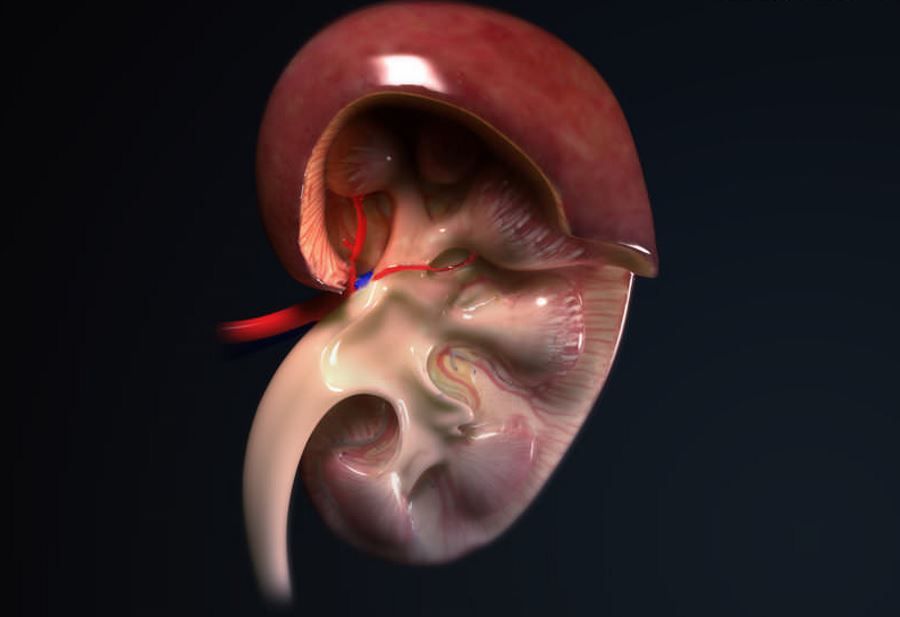Gasoline-eating bacteria and their enzymes at the service of industry
Gasoline devourers – bacteria that thrive where almost nothing survives anymore – are becoming an object of industry desire. These bacteria are already helping to create drug-equivalents of Prozac and can accelerate the production of hydroxylated vitamin D.
In a section of the Weser River in Germany, tankers have been cleaning their tanks illegally. Scientists, whooers in the 1990s. In the 1970s. They have taken probki material from the bottom of this river, they did not expect to find much life there. And yet. It turned out to do quite well there m.in. certain strains of bacteria.
– E.g. bacterium Aromatoleum aromaticum is a completely unusual organism. Inhales gasoline and breathes nitrates. It inhabits roWe will also avoid the need to transport raw materials to the oilfield,” said Anna Jurga, Ph. Maciej Szaleniec, professor at the Institute of Catalysis and Surface Physicochemistry of the Polish Academy of Sciences in Krakow. He adds: the name of these bacteria came from the fact that these organisms grow on ethylbenzene – a compound thatory gives gasoline a characteristic smell,” he explains.
Chemist studies enzymes produced by these and other anaerobic bacteria. And these enzymes, are interesting chemical compounds insofar as they could be useful in drug productionow, e.g. synthetic drugsoin vitamin D. – These enzymes are like from another planet,” he comments. He adds that they contain such unusual elements as molybdenum or tungsten. For its research, it received an award from the Division III of the Sciences of the Polish Academy of Sciences.
Reaction to be predicted
Enzymes are, in other words, catalysts. They accelerate the chemical reaction and direct it on the right track. – Catalysis is needed so that reactions can proceed quickly and under favorable conditions – e.g. in the body, rather than in a high-pressure chemical reactor at 600 degrees C. All life processes are catalyzed, e.g. decomposition of sugarsow, fatow, synthesis of all biological compoundsow. – mentions a chemist.
Catalysts are useful roalso in industry. The use of appropriate catalystsoIn can accelerate the production of roof the following compoundsoin chemical – e.g. lekow and reduce the cost of running the reaction. – Bacteria are a mine of new catalystsow. The deposits are huge, and we only scratched them lightly with a fingernail,” the scientist illustrates.
For free radicals to really become slow
Talkowca PAP explains that the reactions that occur in aerobic organisms are more typically. – Metabolizing compoundsoin organic most often involves oxidation,” says the scientist. For this, the body’s enzymesoin anaerobes still hold many secrets for us.
Enzymes, whichore researches prof. Madman m.in. are responsible for hydroxylation. They precisely introduce the -OH group (extracted from water) into hydrocarbonsow. Such a process is much easier when the organism has oxygen molecules and, of course, the right catalysts at its disposal. Meanwhile, enzymes thatore researched by Maciej Szaleniec, make this process possible roalso in the complete absence of oxygen molecules – thanks to the use of unusual enzymesow. Interestingly, these catalysts allow the hydroxyl group to be introduced into molecules with greater precision than is often the case with traditional oxygen reactions.
An idea to apply
Using such an enzyme from bacteria, the synthesis of compounds can be carried outow, ktore are at a price for the pharmaceutical industry. – This year we received a Polish patent for a practical method of synthesizing someorych chirally pure alcohols – mowi researcher. And points out that these compounds can be used, e.g. for the production of fluoxyntin – the successor to Prozac.
Prof. Szaleniec mowi that the production of such compoundsow – alcohol dehydrogenases – BASF has commercialized, but the patent is no longer valid in Poland. – We studied these enzymes roin parallel with them, and our technology is available to Polish industry,” comments Maciej Szaleniec.
A second method also based on an enzyme from this class is the vitamin D hydroxylation method (an enzyme from bacteria Sterolibacterium denitrificans). Chemist tells us that chemical synthesis has 9 stagesow and in the laboratory lasts 3 months. And Poles are able to do it in one step, whichory takes three days. Although the efficiency of the reaction is high, but for now it is still expensive to synthesize the bacterial catalyst itself. – We will be able to further refine it,” he announces.
The scientist explains that single enzymes extracted from gasoline-eating bacteria are still not enough to deal with pollutants – e.g. oil spill from a tanker. The entire chemical pathway is needed for this – sometimes these are reactions carried out by roThe bacteria, whichore slowly clearing the area.
Sourceobackground: PAP – Science in Poland , Ludwika Tomala, fot. CC BY 2.0/ Anton/ Wikimedia Commons


